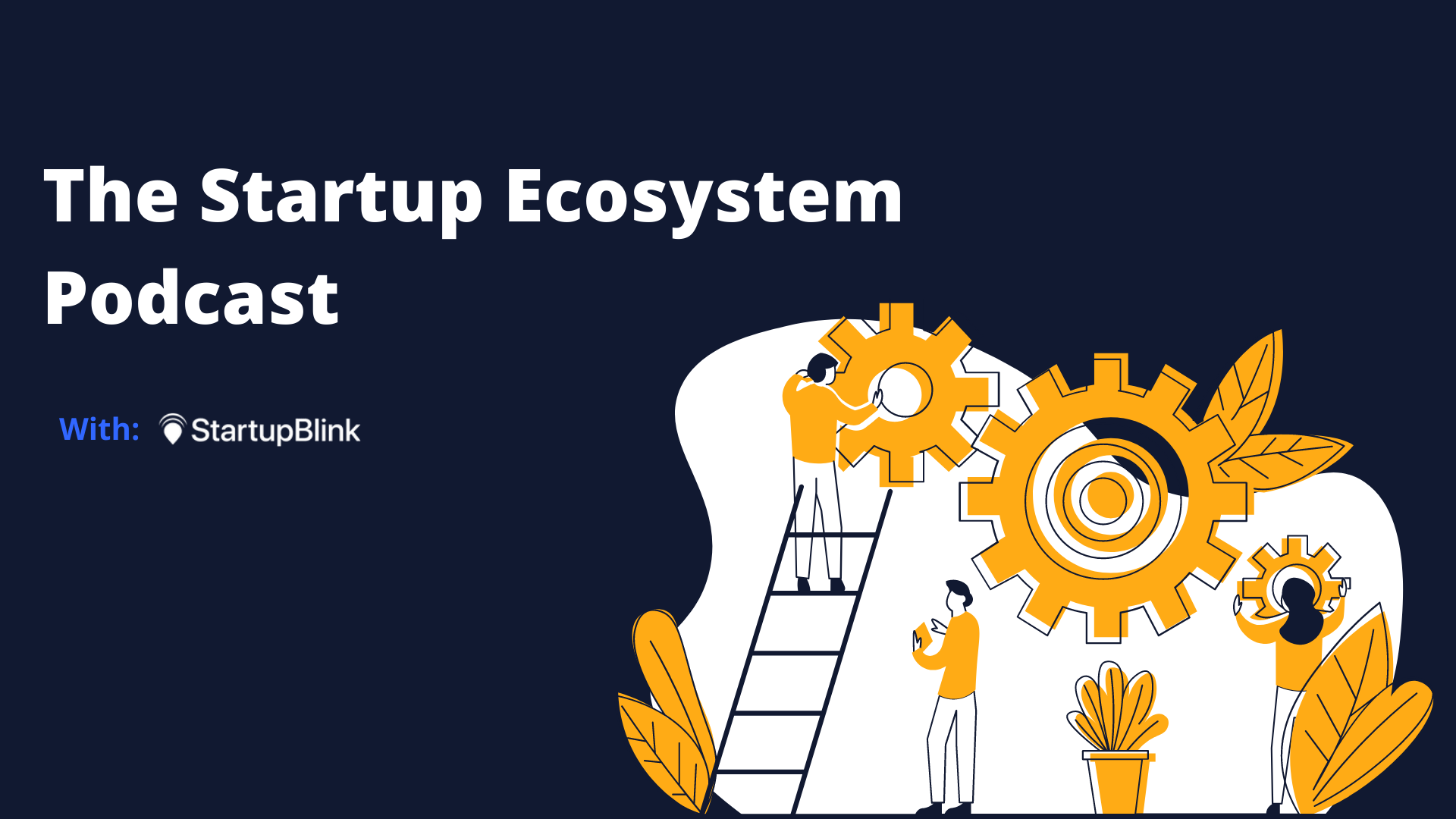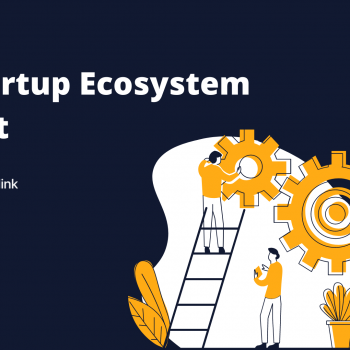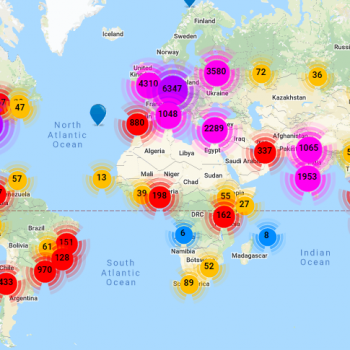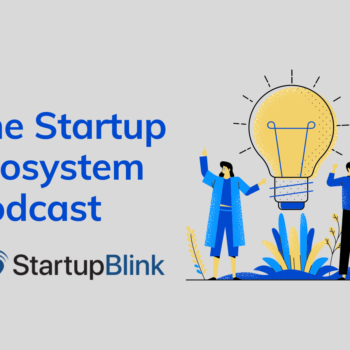In this episode, the StartupBlink team and Eli David discuss the unique advantages of small countries for building a thriving ecosystem.
In StartupBlink’s Global Startup Ecosystem Index 2022, 9 out of the top 20 highest-ranked countries had a population of less than 10 million, as illustrated in the chart below, proving that small countries can build thriving startup ecosystems too.
Israel and Singapore in particular deserve to be congratulated for ranking among the top 10 despite their significantly smaller population, showcasing their ability to produce success stories. It is also important to note that these two countries' total scores are not that far from their respective contender. The score gap between Israel and the UK is 16.5%, and for Singapore and Germany, it is 7.58%.
Estonia is another successful case, as it is the only country among the top 20 with a population tier 1M - 2M inhabitants. Like Israel and Singapore, Estonia’s total score is approximately 11% less than Switzerland's. Hence, these cases raise the question, “Do small countries have an edge in building a startup ecosystem?”.
Advantages of Small Countries in Building a Startup Ecosystem
There are several advantages that small countries can leverage to build powerful startup hubs.
1. Faster adoption of new and creative policies
Countries with smaller populations can adopt new policies faster. They can also implement creative policies easier than others. Estonia’s E-Residency program is a great example. Through using digital channels, business registrations become easier for non-Estonian entrepreneurs. The program is creative in increasing startup output in the country and eliminating the disadvantages of having a smaller population. Since its adoption, more than 25,000 businesses have been established in Estonia.
Furthermore, StartupBlink’s Startup-Business Friendliness Report 2022 showcases the smaller countries such as Sweden, Norway, Denmark, and Finland dominating the top 5 positions due to their enabling business environment.
2. Smaller market size pushes startups to become global
One reason that explains Israel’s outstanding position in the GSEI 2022 can be tied to Israel’s success in building startups for global markets because only building for the Israeli market limits the growth potential of startups. So, beginning from the start, many startups build with a global vision. At this point, Israel is leveraging the benefit of having an English-speaking population, which makes Israeli startups ready to scale in global markets. An example is Gett which operates in Israel, UAE, the UK, Switzerland, and Germany.
On the other hand, the Chinese market is extremely large. However, many Chinese startups prefer to stay local with few exceptions.
3. A Small but Dedicated Population can create success stories
Small countries can reverse the negative effects of having a small population with out-of-the-box solutions. These countries have a smaller talent pool, less funding, and smaller markets. However, we witness some examples in which these countries have returned their disadvantages to advantages with initiatives.
A. Taking advantage of a tight-knit community
Mentorship, training, and resources are key for scaling startups. For example, Singapore’s StartupSG has more than 4,000 startups, 522 investors, and 235 incubators/accelerators in their network, and they have connected thanks to StartupSG, enabling them to build synergies.
B. Building highly-valued global startups
In 2022, Estonia was the most funded startup ecosystem in Europe, although there are many larger countries in the region. This proves how small countries can build highly-valued startups. As small countries are pushed to adopt a global vision, their startups can get more traction. Examples like Bolt from Estonia, Grab from Singapore, and Fiverr from Israel prove the advantage of a global mindset These startups are not only recognized in their own countries but around the world.
C. Attracting Global Talent
Digital Nomadism was a recent trend in which professionals travel freely and continue to work simultaneously. Countries developing policies and initiatives for digital nomads are in an advantageous position because they connect their ecosystem with global talent. Estonia reversed the effects of having a small talent pool, welcoming foreigners via its Digital Nomad Visa.
“If you are in an underperforming ecosystem, either leave it or lead it.”
Eli David, CEO of StartupBlink
Hence, stakeholders should always think creatively to gain traction for their ecosystem.
The examples in this article show that size is not a constraint for building an overperforming ecosystem. At StartupBlink, we offer various services for ecosystem development. If you are looking for solutions to uncover the hidden potential of your ecosystem, you can contact us through feedback@startupblink.com
About Us:
StartupBlink is the world’s most comprehensive startup ecosystem map and research center, working with over 100 government entities worldwide. StartupBlink’s global startup ecosystem map has tens of thousands of registered startups, coworking spaces, and accelerators, creating a robust sample of innovation globally.
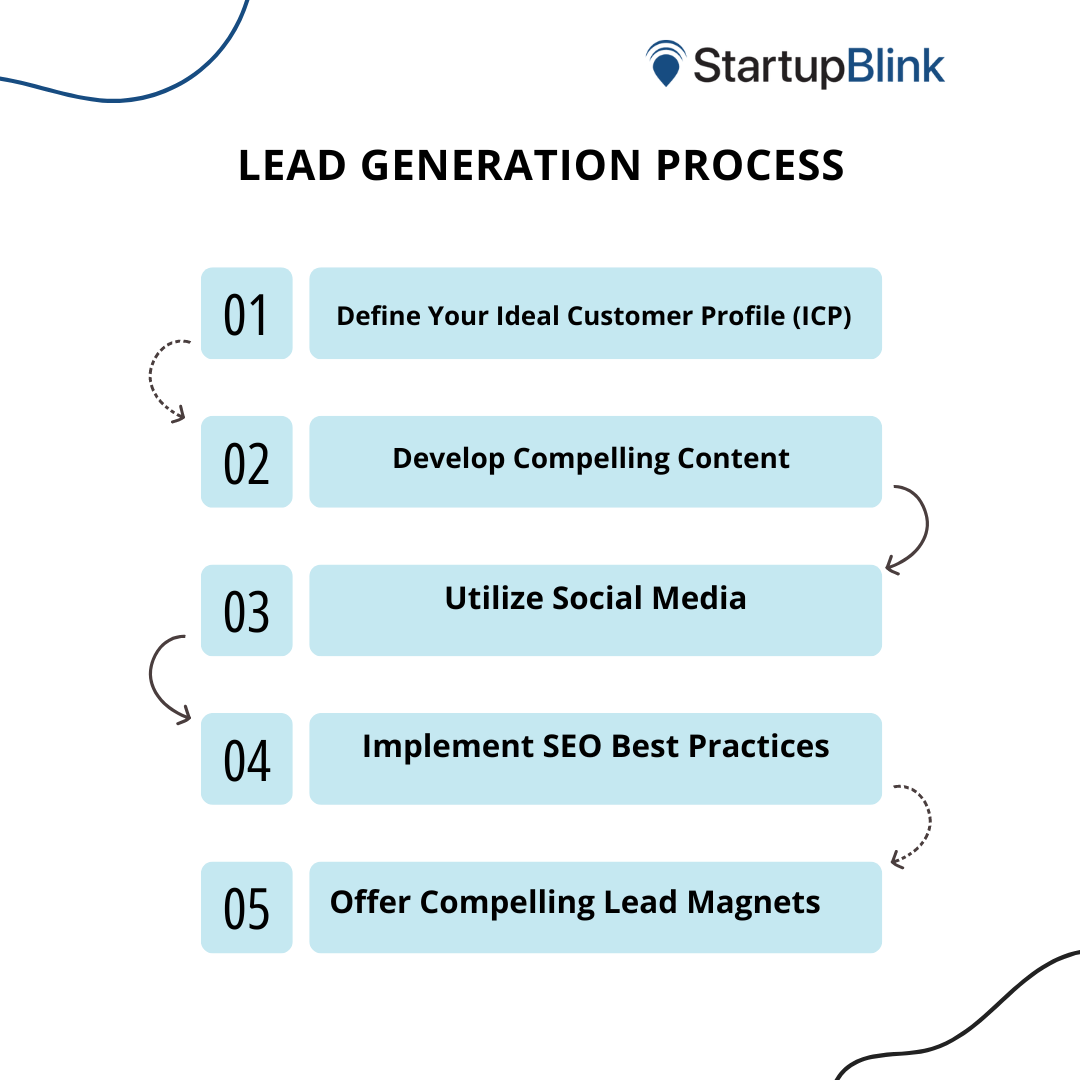
80+ Professional Bio Templates & Examples
Create a compelling professional narrative for a proper, attention-grabbing introduction.
- LinkedIn Summaries
- Website Bios
- Speaker Intros
- Professional Profile
